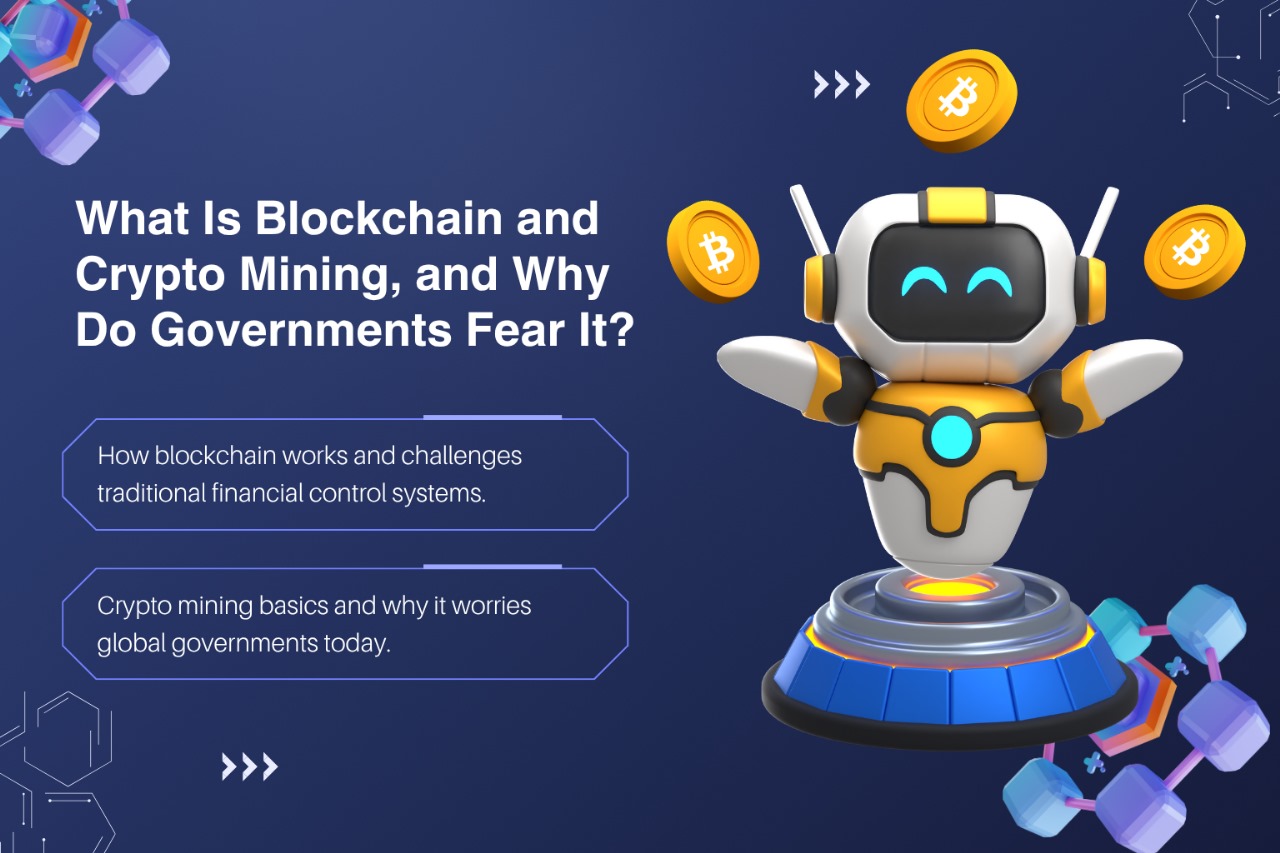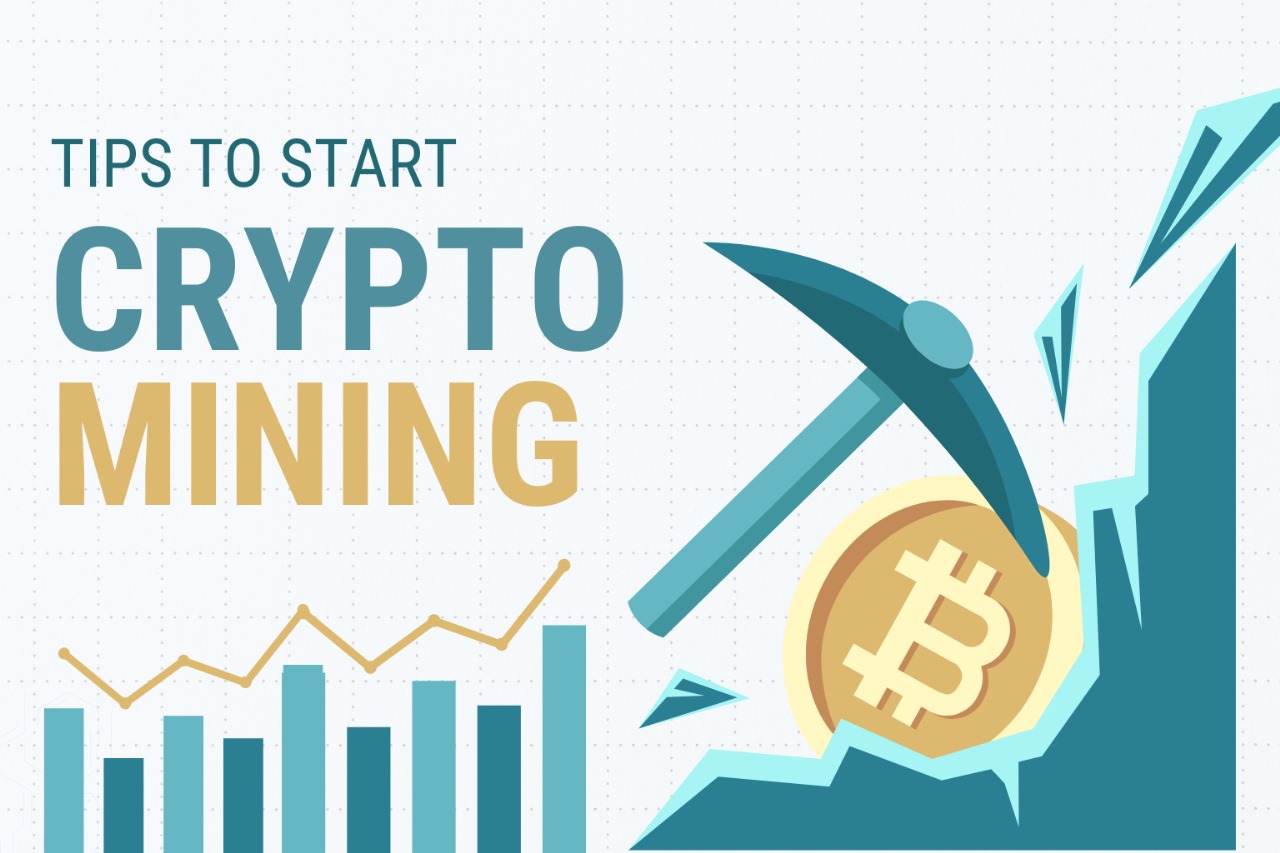What Is Blockchain and Crypto Mining, and Why Do Governments Fear It?
Smash Code
Jun 12, 2025

Last winter, during a power outage, my neighbour Bilal knocked on my door, laptop in hand. "Do you have Wi-Fi? I'm trying to check something about crypto mining," he asked with a sheepish smile. I offered him a cup of tea and we got talking.
Like many people, Bilal had heard about Bitcoin, maybe even Ethereum, but the deeper stuff like blockchain and mining? It was a mystery.
So let me break it down for you—no tech jargon, just real talk.
🔧 What Is Blockchain?
Think of blockchain as a digital notebook that records everything publicly. But instead of one notebook in one person's drawer, copies of this notebook are kept by thousands of people worldwide. Every time a transaction happens, it’s added to this notebook. Once added, it can't be changed or deleted.
This is why it’s called a "blockchain"—data is stored in blocks, and every new block is linked to the previous one like a chain.
It's super secure, super transparent, and no one person can control it. That’s why it's so powerful.
🚄 What Is Cryptocurrency, and How Does Mining Work?

Cryptocurrency is digital money that lives on the blockchain. Bitcoin is the most famous one, but there are thousands like Ethereum, Cardano, and Solana.
But where do these coins come from? That’s where crypto mining comes in.
Imagine you're in a math competition. Every time you solve a hard problem, you're rewarded with a gold coin. That’s basically what miners do. They use powerful computers to solve complex math puzzles. When they solve one, a new block is added to the blockchain, and they get rewarded with crypto.
This process is called mining.
💡 Quick Fact: In the early days of Bitcoin, anyone could mine using a regular laptop. Now, it requires specialised machines called ASICs (Application-Specific Integrated Circuits) and tons of electricity.
📉 What Do You Need to Mine Cryptocurrency?

If you’re thinking of mining from your bedroom, here’s what you’ll need:
- High-performance hardware: ASICs or GPU rigs
- Cooling systems: These machines get HOT!
- A stable internet connection
- Access to cheap electricity: Mining consumes a lot of power
- Mining software and a digital wallet
💸 Example: In 2023, it was estimated that Bitcoin mining consumed 91 terawatt-hours of electricity annually—more than the entire country of Finland (source: Cambridge Bitcoin Electricity Consumption Index).
🌍 Who's Using Crypto and How?
You might be surprised how widespread crypto use has become:
🌐Crypto.com says that by the end of 2024, the number of people who own cryptocurrency around the world grew to 659 million.
💡 People use crypto to:
- Send money across borders quickly and cheaply
- Buy goods and services online
- Invest and trade
- Participate in digital art (NFTs)
- Join decentralised finance (DeFi) platforms to earn interest
Countries like El Salvador have even made Bitcoin legal tender!
In places like Nigeria, India, and Pakistan, young people are using crypto as a way to escape unstable local currencies or limited banking access.
🏛️ Why Are Governments Reluctant to Regulate It?
Here comes the spicy part.
Governments aren’t exactly fans of crypto. Here’s why:
- 🤧 Loss of Control: Cryptocurrencies operate outside central banks. That means governments can't print more money or freeze accounts.
- 🕵️ Anonymous Transactions: While blockchain is transparent, many cryptocurrencies allow privacy. This makes it easier to fund illegal activities if not regulated.
- 📅 Tax Challenges: It’s hard to track and tax crypto profits without proper laws.
- 🌐 Economic Stability: Rapid adoption of crypto could destabilise traditional financial systems, especially in developing countries.
But not all governments are anti-crypto. Countries like Switzerland, the UAE, and Singapore are embracing crypto with smart regulations.
🧑📈 What Experts Say About the Future of Crypto
Here’s what the big brains are saying:
- Cathie Wood (ARK Invest): Predicts Bitcoin could hit $1 million by 2030 if institutional adoption grows.
- Vitalik Buterin (Ethereum co-founder): Believes the future is in scalable and eco-friendly blockchains that power finance, identity, and even voting.
- Forbes reports that by 2030, blockchain tech could generate $1.76 trillion in value globally.
And it’s not just finance. Supply chains, healthcare, and real estate are all exploring blockchain uses.
🚀 Final Thoughts: Crypto Is Here to Stay
As Bilal sipped his tea, I showed him a chart of how Bitcoin had grown in value over the years. His eyes widened. "This is wild," he said.
It is wild. But it’s also the future.
Whether you're in it for investment, innovation, or just curiosity, crypto and blockchain are transforming how we think about money, trust, and the internet.
Governments will need to find a balance—protecting users while allowing innovation.
So, is it risky? Sure. But so was the internet in 1995.
The key is to start small, stay smart, and never stop learning.
Because the future of money isn’t in your pocket. It’s on the blockchain.
Have a question? Drop it in the comments. Let’s decode this together.
Cheers to learning something new today! 🤝